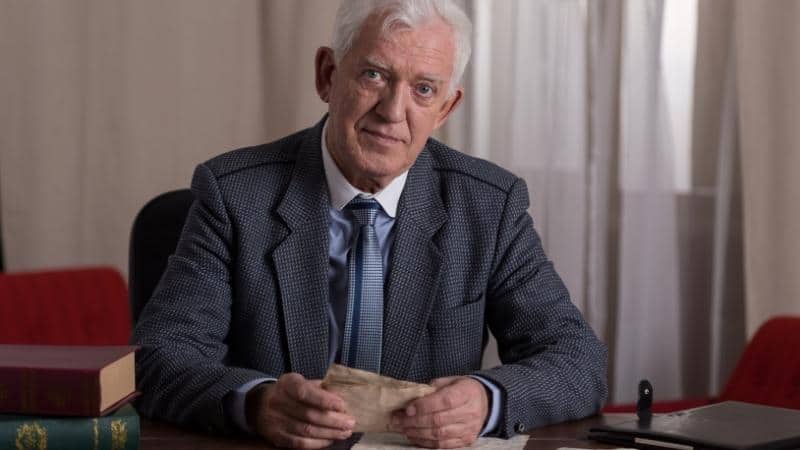Clients and lawyers are seldom surprised by retirement because it is generally prearranged. Accidental death or illness, on the other hand, is unforeseeable by nature, and neither the clients nor the lawyer is ready for it. Sadly, lawyers, like everyone else, grow old. They’ve decided to leave. And, yes, people do die in unexpected ways.
One of the wisest decisions you can take after being injured in an accident is to seek a personal injury lawyer. A lawyer’s assistance considerably improves your probability of gaining the full results you are looking for and a good outcome in your matter.
When your estate planning lawyer goes to retirement, you’re in big trouble. It’s a far more dire issue than most others. You’ll probably feel trapped, particularly if your lawyer’s retirement is unexpected or if they neglect to notify you.
You might worry if your estate plan is still useful if you lose your lawyer’s knowledge and counsel. You may also miss key authentic documents such as wills or living trusts if your lawyer kept your estate planning materials.
If an attorney gets retirement or becomes handicapped, a sequence of events is put into motion at the law firm. The following are examples of typical courses of action:
- Another lawyer from the same firm could take up the cases, or
- It’s possible that an outside lawyer will be assigned to help wind down the firm.
- the administrator of the lawyer’s estate may sell the agency to another lawyer.
It’s natural to feel bewildered, confused and frustrated during such a moment, but it’s crucial not to stress. Let’s go over the challenges you might encounter and how you can manage to preserve your dear ones’ futures at this troubling time.

When your lawyer unexpectedly retires (in estate planning)
Among the most valuable sorts of lawyers in our life is an estate planning lawyer, who can assist you to build a strategy to safeguard your family members in the event of your demise or disability. Private information may be shared with your lawyer as part of this procedure. During the time of the formation of an estate plan, clients frequently form a close bond with their lawyers.
Whether your estate planning lawyer dies, quits, or relocates to some other state, you’ll likely be faced with the same problems and challenges. Is my last will and testament still legitimate? Who can I contact if I have any questions? Who can I call to keep my strategy and plan updated when my circumstances change? Who will lead my family if I become incapacitated? Who will assist my family in settling my estate?
Lawyers usually endeavor to safeguard their clients in the event that they are suddenly unable to practice law. This could entail making allies with other lawyers in terms of reaching out to clients and terminating the practice.
It’s conceivable, however, that your lawyer failed to make the appropriate preparations or was unable to contact you. You may very well be left without legal support and perhaps without official documentation if your lawyer neglected to establish contingency plans or failed to tell you of their leave.
Don’t stress out if this is your circumstance or if you’re worried your lawyer won’t be willing to assist you. Your list will remain valid. Although if your initial lawyer is no longer available to help you, your wills, trusts, and other papers are yet legal. If you have a will or trust created by some other lawyer, a skilled estate planning lawyer should therefore be ready to assist you.
Furthermore, your family and friends can seek advice from a knowledgeable estate planning lawyer after your disability or demise. While this is a new partnership, it will not increase your stress levels.
The originals of the crucial estate project plan, such as your will or trust, might be kept safely by your lawyer. It wasn’t a horrible mistake on your side to leave your paperwork with your lawyer, but it’s one you might want to rethink. Finding your absent lawyer, as well as possibly lost documents, can be a difficult procedure.
Generally, consulting with a new estate planning lawyer is an excellent starting point. You’ll almost certainly need a new lawyer regardless, and they can assist you in navigating what might be a challenging circumstance.
Getting a new lawyer
A knowledgeable estate planning law firm can assist you in navigating the ramifications of your former lawyer’s departure. They are aware of the challenges that come with missing a lawyer and can examine your estate plan to verify all is in order.
Moving to a new lawyer also allows you to begin again with your overall plan. If your estate plan was centered on a will, a renewable living trust might prevent you from getting probate, safeguard your confidentiality, and much more.

What can I do now to get ready?
Several law firms advise getting a few easy actions to avoid future conflict or uncertainty as a result of a prospective retirement or demise:
Keep in touch with your lawyer’s office
Their office must call you to let you know what’s going on. They will require your valid contact information, mailing address, and email account in order to do any of this. Please notify your lawyer’s office if any of this key information gets changed.
Locate the original documents
In the case of your disability or demise, it’s critical that your family members have access to your authentic, approved estate project plan. Whatever location you choose for your papers, be assured your loved ones have this for them if they are required.
When my lawyer retires, what happens to my will?
Your wills are still legitimate, so unless your kids can locate the authentic ones, they will be meaningless. A duplicate of a will can be approved by the court, although the will could be challenged if the genuine was canceled rather than just lost.
Many lawyers offer free storage of the authentic wills they write for their clients. They do this so that they can administer their customers’ estates. When a customer passes away, their heirs examine the copies of the will and contact the lawyer whose name is spelled out in large letters on the first page. That lawyer seems to be more likely than anybody else to take up the probate.
A locked file cabinet filled with wills could be a goldmine of court work at some point.
There are solid reasons to retain your initial wills with your lawyer. You don’t have to worry about missing your wills if they’re in your lawyer’s lockup. You might even be frightened that only certain members of your family will have to go further to ruin your will in order to gain a larger fortune, which will not occur if the will is in your lawyer’s safekeeping.
This backfired in your circumstance. Your lawyer’s staff should have delivered the genuine wills to you and your spouse once he resigned or passed. Of course, it’s possible they attempted to do so. If you relocated without informing your lawyer, his employees would be unable to retrieve your previous wills.
They should’ve just done one of two things if they couldn’t locate you. It’s possible that your wills were filed with the State Supreme court. Alternately, while shifting your wills to some other lawyer, they may have alerted the California State Bar Association. Consult the Superior Court in the county where the lawyer practiced.
You could be better off finding a different and young lawyer to modify your estate plan instead of going on a fool’s errand. There is no way to escape probate with a will. If both you and your spouse own it all jointly as tenants in common or communal assets with an heir, the surviving between the two of you can receive the decedent’s inheritance outside of probate,
However, when the successor passes, the estate will have to be intestate succession in the court. A revocable trust can help you prevent probate and its associated costs. You need to see a new lawyer who can counsel you on all of your alternatives because you need new wills anyways.

How can you stay out of trouble?
It’s frustrating to lose your personal injury lawyer unexpectedly, but it doesn’t have to be traumatic. To avoid a probable death, incapacity, or retirement from creating uncertainty or harming your case, it is recommended to take a few basic actions.
Carefully examine lawyer: Before Selecting a Personal Injury Injury Lawyer, thoroughly analyze their online presence, educational qualifications, and client testimonials, all of which testify to their entire credentials. Don’t be fooled by high statistics and glitzy billboards. When you engage one of the high-volume law firms, you will almost certainly be assigned to a case manager or somebody else.
Worse yet, these settlement mills are frequently more concerned with “filling their statistics” than with the well-being of their clients. They take lower settlement offers in order to get a favorable impact that they can promote in their advertisements.
Maintaining relationship with the lawyer: Without current contact details, the inventory lawyer or other parties will be failed to communicate with you if your lawyer passes away, becomes incapacitated, or is disbarred. So try and keep in connection with your personal injury lawyer and let them know if your contact details get changed.
Self-Education: You can detect areas of concern if you have a reasonable understanding of your issue. You need to get conversant with important terms (for example, defendant, plaintiff, deposition, and carelessness), as well as the systematic process of your matter and the applicable statutes of restrictions.
It’s understandable that you get worried when your lawyer retires unexpectedly but following the above-mentioned suggestions and advice might help you to get your things done.
Related Article: How to Become a Lawyer in Florida
